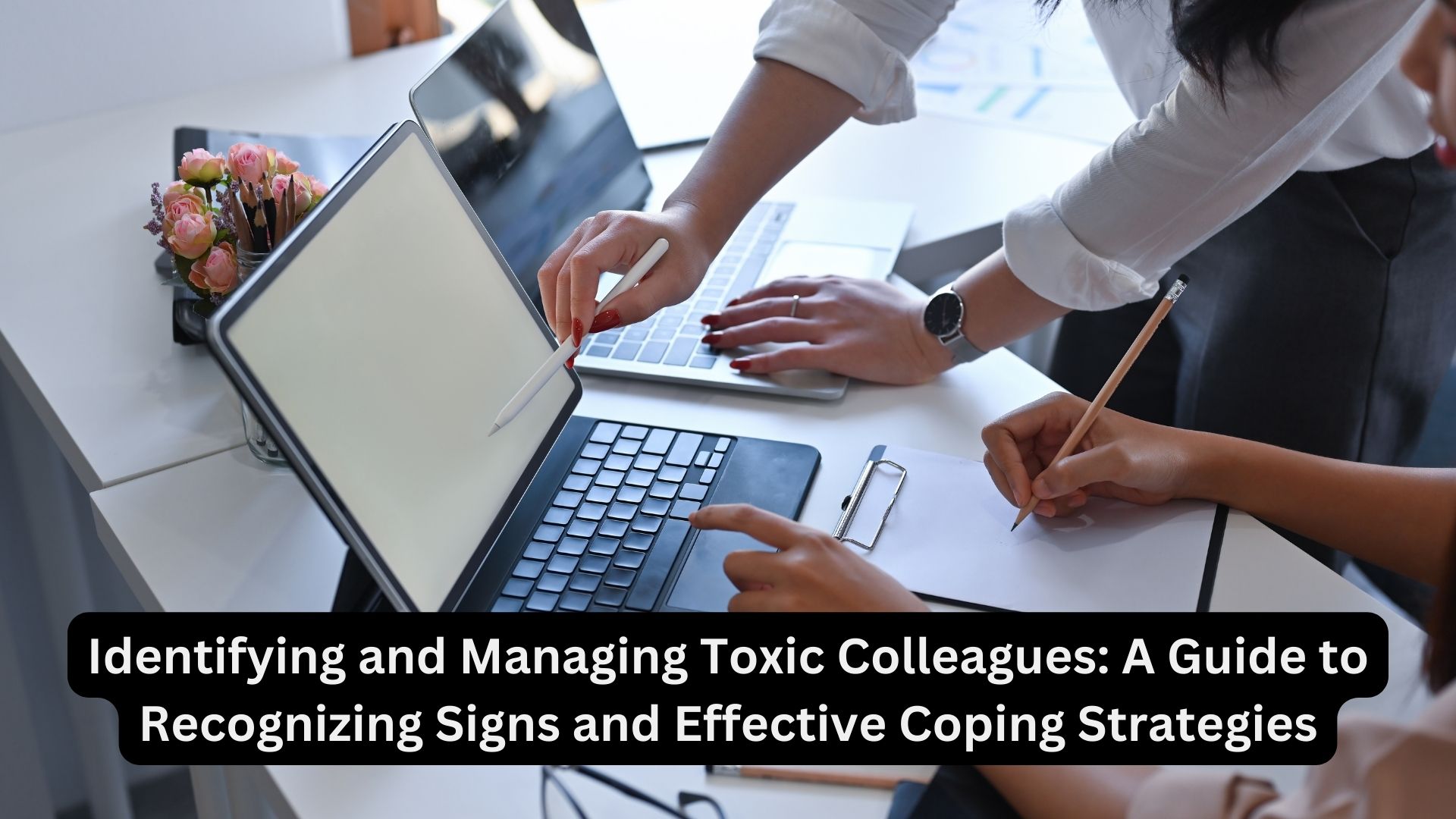
Creating a positive work environment in a professional setting is contingent upon having a supportive and collaborative team. Unfortunately, not all colleagues contribute positively, and managing toxic coworkers can pose challenges. Identifying signs of toxicity and implementing effective coping strategies is crucial for maintaining well-being and productivity. Here are key indicators of toxic colleagues and ways to navigate these challenging relationships:
Indications of Toxic Colleagues:
- Consistent Negativity: Toxic colleagues often maintain a persistently negative attitude, frequently complaining, criticizing others, and rarely offering constructive solutions. This negativity can impact team morale and hinder a positive work environment.
- Undermining Behavior: Toxic coworkers may engage in subtle or overt undermining behaviors, such as taking credit for others’ work, spreading rumors, or intentionally excluding team members from important discussions.
- Lack of Accountability: Toxic individuals typically avoid taking responsibility for their mistakes, blaming others, making excuses, or shifting accountability, creating a toxic cycle that affects the entire team’s productivity.
- Poor Communication: Effective communication is crucial in the workplace, but toxic colleagues often struggle with it, leading to misunderstandings, conflicts, and a general lack of cohesion within the team.
- Excessive Competition: While healthy competition can drive innovation, toxic colleagues take it to an unhealthy level by intentionally withholding information, sabotaging others’ efforts, or creating a hostile atmosphere.
Dealing with Toxic Colleagues:
- Set Boundaries: Establish clear professional boundaries to protect yourself from toxic behavior. Communicate firmly but politely about what you find unacceptable to deter toxic colleagues from crossing boundaries.
- Maintain Professionalism: Despite challenging circumstances, maintain a professional demeanor. Avoid reacting emotionally to toxic behavior, as this may escalate the situation. Focus on your work and stay committed to your goals.
- Document Incidents: Keep a record of specific incidents involving toxic behavior, noting dates, times, and details. A documented record can be valuable if you need to escalate the issue to higher management or human resources.
- Seek Support: Reach out to trusted colleagues, mentors, or supervisors for support. Share experiences without gossiping, seeking advice on how to handle the situation. Others may provide valuable insights based on similar experiences.
- Confront Directly (if appropriate): Addressing the issue directly with the toxic colleague may be necessary in some cases. Choose a private setting, express concerns calmly, and focus on specific behaviors rather than making personal attacks. Be open to constructive dialogue.
- Escalate to Supervisors or HR: If toxic behavior persists and significantly affects well-being and work performance, consider escalating the issue to supervisors or the human resources department. Provide documented incidents as evidence.
- Focus on Self-Care: Dealing with toxic colleagues can be emotionally draining. Prioritize self-care by maintaining a healthy work-life balance, practicing stress-relief techniques, and seeking support from friends and family outside the workplace.
Also read
7 Workplace Etiquettes That Can Propel Your Success
